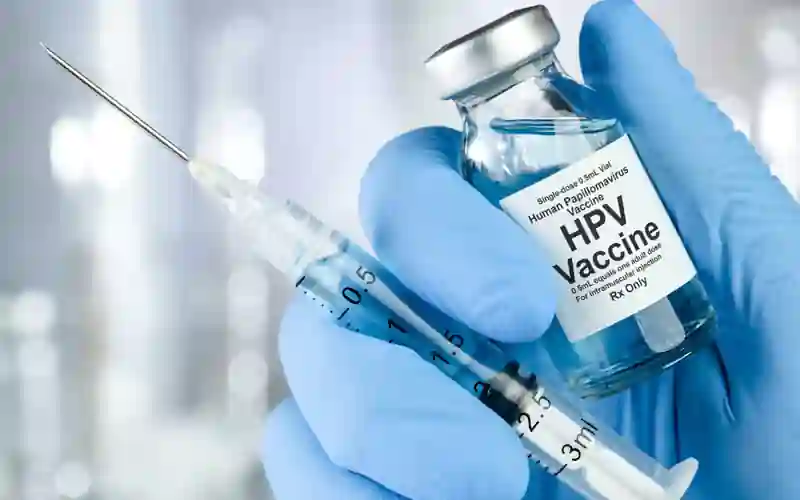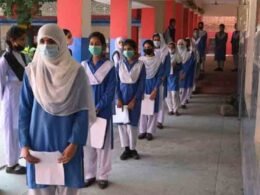Pakistan is set to start its first-ever nationwide cervical cancer vaccination drive, which is scheduled to run from September 15 to 27.
According to the official health department, the Human Papillomavirus (HPV) vaccination campaign – focused on protecting school-going girls aged 9 to 14 years – will be conducted across Punjab, Sindh, Azad Kashmir, and Islamabad.
The officials also confirmed that efforts are underway to maximize participation in the first phase, as registration for students in both public and private schools has already started.
For better convenience, the HPV vaccine will be available at select centers, community health centers, and from mobile units. Health teams will also go to schools to give the doses at the premises.
One dose of the vaccine will be administered to each eligible girl, pointed out experts as one of the most important preventive measures against cervical cancer.
The officials had referred to the program as a milestone in public health, designed to protect young girls from an avoidable and life-threatening disease while boosting countrywide efforts in preventive healthcare.
Authorities have urged parents to cooperate with health teams and ensure timely registration and vaccination to safeguard the health of future generations.
Officials described the initiative as a significant public health milestone, aimed at safeguarding young girls from a preventable and life-threatening disease while enhancing nationwide efforts in preventive healthcare.
Earlier to this, Health experts are urging the government for the urgent establishment of a national cancer registry in Pakistan to improve monitoring of the cases, warning that the rising number of patients requires immediate and organized action.
A new study published in The Lancet Regional Health – South Asia highlights the need for a unified system to track cancer cases, plan health policies, and distribute resources effectively, lack of a centralized cancer data system is making it difficult to track the disease, plan health policies, and allocate resources effectively.
The study, conducted by researchers from the Aga Khan University (AKU), University of Wisconsin, and Shaukat Khanum Memorial Cancer Hospital, reveals that Pakistan reported around 185,748 new cancer cases and 118,631 deaths in 2022 alone. However, without a national registry, the available data remains incomplete and scattered.
Currently, 17 cancer registries exist across Pakistan, but they are limited in scope and coverage. Only 19 out of 129 cities provide cancer data, and most registries struggle with poor funding, lack of coordination, and inconsistent data collection methods.










